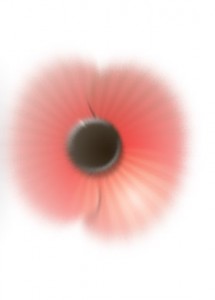The UK approaches its annual remembrance of long past wars.
Somewhat heretically it would seem, I find myself asking why?
 Armistice Day, Remembrance Sunday, sombre processions, the minute’s silence, laying of wreaths, dark music, darker poetry, words of defiance, poppies worn with pride.
Armistice Day, Remembrance Sunday, sombre processions, the minute’s silence, laying of wreaths, dark music, darker poetry, words of defiance, poppies worn with pride.
Lest we forget.
I have a problem with it. And it goes beyond my usual hatred of chuggers rattling tins in my face, of mass events in which the few genuinely participate while the majority sheepishly and hypocritically play along, and of the presumptuous expectation of conformity and compliance endemic in modern society.
And I think my problem is this.
Remembrance day.
Why?
The dead?
If you fight a war primarily for other people you are a worthless fool. If you fight a war primarily because you’ve been told to you’re a dolt. If you fight a war primarily to be celebrated in death then the myth is not only mightier than the man, it’s the only good thing about the man.
Everything we do, primarily, we do for ourselves. Even those things we do ostensibly for the benefit of others are, through the satisfaction we get out of doing them, primarily for ourselves.
So why fight a war then? Why risk your life fighting for country or cause? Simple – because the consequences of not doing so to you, be they shame, subjugation or something else, are less attractive than the potential consequences of fighting it (i.e. death, dismemberment and so on).
I hugely respect what the combatants of past wars did for my generation, be they counted among the living or the dead. I freely acknowledge it. But in doing so I also acknowledge that they did it first and foremost for themselves, and I would no more want to make a patronising offer of gratitude to them than I would think they’d expect it.
The living?
Yes, it might ease the survivor guilt of those left behind. And yes, for those who lost loved ones respectful remembrance may well be a comfort, as it may well be for those who fought alongside the fallen.
But why a designated day? Why a contrived event? You can quietly remember your loved ones any time and you can get together with old comrades in arms for a few drinks and to share a few memories any time too if that’s what you want to do.
And it’s a good question. Why was he “wearing his poppy with pride?” He doesn’t need to. He can respect the dead without it. He can honour and help the living without this showy, conventional piece of symbolism too. It doesn’t need a public gesture and if the only reason it’s done is for the public gesture it’s not only selfish, it’s inexcusably thoughtless.
So it never happens again?
This is just horseshit. I mean, seriously, if a modern day Hitler emerged and started invading neighbouring countries and exterminating minorities, what precisely would we do differently as a result of remembering the last time it happened? Let him win? Roll over and take it up the arse? I think not.
And as for that modern day Hitler, if he (or she) were insane enough to embark on a program of global conquest and selective socio-religious genocide, are they really likely to have the sort of balanced mind capable of being swayed by negative lessons from history? Hardly.
Now, some might say that the “winners” of WWI created the Third Reich and Nazism through their rabid and obsessive pursuit of full reparations from post-war Germany. Perhaps, had they not applied a nation’s undeniable culpability to each of its citizens and robbed the German people of their dignity and their economic well being for so damn long, WWII might not have happened. Maybe here there is an important lesson that remembrance can keep alive?
Nice thought, but it isn’t working is it? After all, when it comes to visiting the sins of a nation on each of its countrymen our handling of the Greek debt crisis – lining up many years of crippling austerity for the working man while the investments of the wealthy and strong are protected – seems an awful lot like our approach to Germany in the 1920s to me.
War and peace
In 2014 it will be 100 years since the start of World War I, a fact that will be laid on with a trowel in many quarters I do not doubt. But what does it achieve? There will be wars again, whether we remember the past ones or not. Future wars will not be like previous wars, nor will they be like their wars to come. The comfort of reflection can be enjoyed in private and without imposition on those for whom it is still painful.
As to the rest of us, shouldn’t we just enjoy the hard earned peace while it lasts?
After all, isn’t that freedom what our fallen forbears fought for?